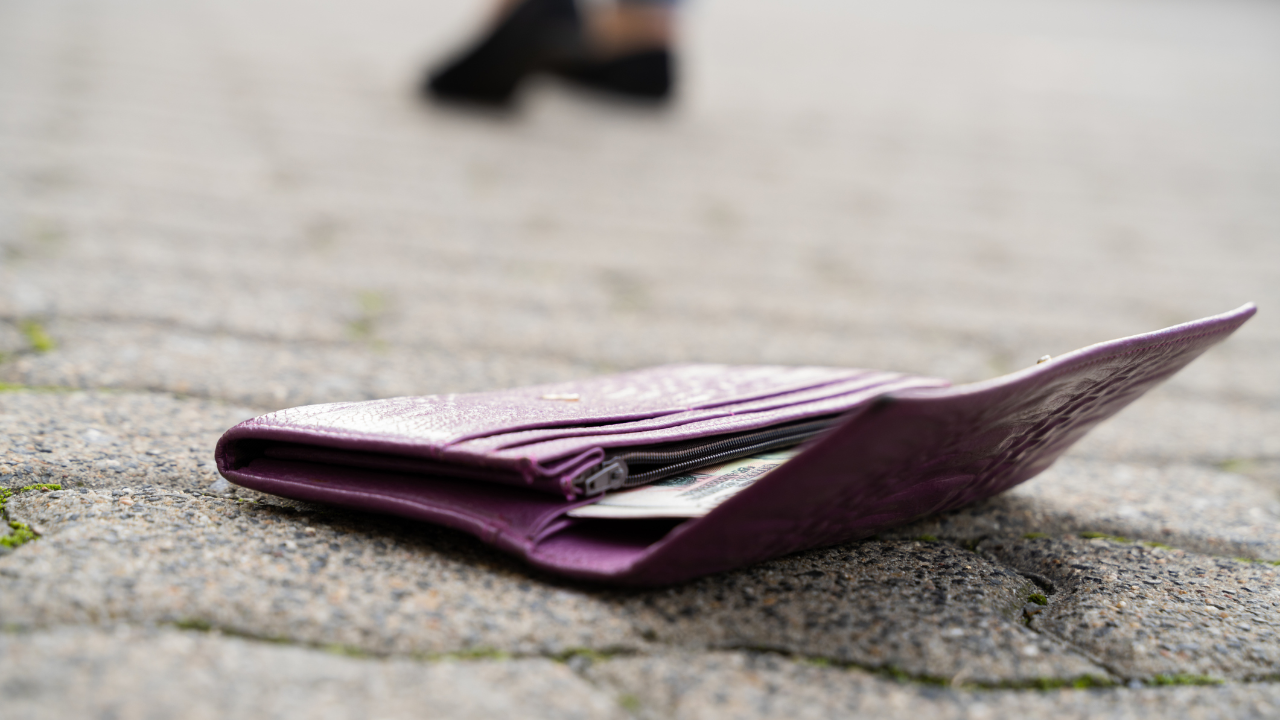How to handle repeated credit card fraud

Key takeaways
- Credit card fraud isn’t always a one-time occurrence — sometimes, an instance of fraud is part of a repeated fraud pattern.
- As credit card fraud continues to rise, cardholders are an important line of defense against repeated credit card fraud.
- In addition to cardholders taking steps to stay vigilant against fraud, credit card networks are also using new technology that can help thwart fraudsters.
Payment card fraud losses worldwide reached $33.83 billion in 2023, according to The Nilson Report’s Annual Fraud Statistics issue — up 1.1 percent from 2022. In the next 10 years, card fraud will cumulatively amount to $403.88 billion worldwide, with a disproportionate amount occurring in the U.S., it says.
In order to avoid credit card fraud, it’s imperative that you check your accounts regularly for unauthorized activity.
One day, you may notice some charges you don’t recognize on your credit card billing statement, so you call your card issuer and file a fraud report. You get a replacement card with a new number, but a few months later, the same thing happens again.
As it turns out, you’re a victim of repeated credit card theft. To solve the problem once and for all, you must take steps to learn how to manage your credit card’s security risk exposure. Keep reading to find out how to spot gaps in your card’s security, as well as how you can patch those gaps to keep fraudsters out of your finances.
How can your credit card become compromised repeatedly?
There are several ways you can become a victim of repeated credit card theft. Here are four of the most common sources of compromise, along with how you can go about putting an end to them.
Targeted cyberattacks
What it is
Since people tend to make most of their financial transactions using their computers and mobile devices, those tools are high-priority targets for credit card thieves. One of the most common types of cyberattacks is phishing, where scammers try to trick you out of your personal information using fake emails, fake text messages and fake websites.
A phisher who gains access to your email can use that to break into accounts you use for online shopping and continually wreak havoc there, or worse, they could gain entry to your bank or credit card account itself.
It’s also possible that a hacker could infect your computer or device with malicious software, or malware, that lets a hacker spy on you. Using malware, a hacker can track what you type using a keylogger, or record information you enter into websites using a form grabber, and easily get your new card details every time you use that card online.
How to resolve it
If you suspect someone has access to your online accounts because of a cyberattack, follow these steps:
- Change passwords to lock hackers out. Also, two-factor authentication serves as a warning that someone is attempting to gain access to your account. So, if two-factor authentication is available — use it.
- Install and regularly update antivirus software. This protects your computer from unwanted invaders, such as viruses.
- Practice good cybersecurity habits. Good password management, avoiding suspicious emails and links and refraining from using public Wi-Fi goes a long way in keeping your information safe and secure.
Card skimming and shimming
What it is
Card skimming happens when a fake device is attached to the card slot where you swipe your credit card. Card shimming is when a scammer places a device on a card reader to steal data from a card’s microchip.
Both fake devices collect credit card information that’s later used to commit fraud. These devices are becoming increasingly subtle and sophisticated, blending in almost perfectly with the machines on which they’re placed. With enough savvy, a criminal can put a skimmer on any card reader, but they most frequently appear on publicly exposed terminals such as ATMs and gas station pumps.
Some operators also pay restaurant and retail employees to skim or shim cards that customers give them, which is even harder to detect because in those situations, you often can’t check the card reader yourself.
How to resolve it
Though skimmers and shimmers can be hard to detect, they have a few telltale signs. Look out for:
- Slight differences in design between payment terminals. If a shop you frequent has a terminal that looks off from others that you’ve visited, it might have a skimmer attached.
- Number pads with stiff, unresponsive buttons. These buttons are often harder to press because they’re layered on top of the real number pads.
- Loose card slots. Tug on the card slot to see if it jiggles loose. If it does, don’t use it.
- Out-of-order signs on nearby terminals. Card thieves sometimes put them up to redirect people toward a terminal they’ve equipped with a skimmer.
Apart from that, you could also try and vary the businesses you visit or swap out your payment methods for a few months to see if anything changes. If you avoid a restaurant for a while, and at the same time experience an extra-long gap between card fraud attempts, you may have just narrowed down the source of the theft.
Compromised merchants
What it is
Sometimes your card getting stolen doesn’t indicate a weak point in your security, but in the security of a business you use. Brick-and-mortar stores can have their electronic point-of-sale (POS) systems infected with malware that sends credit card information to a third party — something we’ve seen frequently in recent years with data breaches at hotel chains and retailers.
E-commerce websites are also risky, as hackers can scrape customer payment details from their servers (which are often sold in bulk on the dark web), or the website owners could be unscrupulous enough to steal credit cards themselves (most often something you’ll encounter visiting sketchy foreign-based websites or clicking on malicious or fake links). In either case, you can’t be sure of the security measures most businesses are taking to keep your information safe, so you could shop at a business for a long time without knowing it’s a source of your credit card theft woes.
How to resolve it
If you suspect a brick-and-mortar store of being your source of repeated credit card fraud, look out for the signs outlined in the section on skimming/shimming. If you’re not sure which store could be the source of fraud, avoid businesses where you regularly shop, or switch up your payment methods for a little while to see if that changes the theft pattern at all.
With e-commerce websites, you have a few more options, such as:
- Making sure your connection is secured. You should see “https” before the website name when you look at the URL.
- Looking for a seal of approval from a trusted organization. TRUSTe or the Better Business Bureau are two common examples.
- Removing your credit card information on your online accounts. Having your card information saved by your favorite store may be convenient, but it also increases the chances of your card getting hacked.
- Using virtual card numbers instead of your real card number. Virtual credit cards, which use randomly generated numbers instead of your actual card number, are good alternatives if you want to keep the convenience of storing your card on a merchant’s website.
- Making sure you’re on the correct website when you intend to make a purchase. Something as simple as a few transposed letters in a URL could mean the difference between a legitimate site and a fake site meant to steal your information.
Larger websites such as Amazon and Etsy are pretty safe to do business with, but smaller websites are more likely to get hacked or engage in outright criminal activities including credit card theft, so proceed with caution. The same goes with shopping within apps on your phone or other devices – make sure you’re using a legitimate app.
Familiar fraud
What it is
Unfortunately, in many cases of repeated identity theft or fraud, the perpetrator turns out to be someone you know, including a relative or caregiver. Known as familiar fraud, this type of identity theft can be the most frustrating because often people are less likely to suspect someone close to them versus a stranger. A committed credit card thief in your midst could even intercept your mail or file a change of address form to ensure they get a peek at your new card number before you do.
How to resolve it
If you’re experiencing repeated credit card theft and none of the other sources of compromise we’ve described seem to be the culprit, then you might want to look closely at the people around you. Familiar fraud carries an emotional charge that fraud perpetrated by a stranger doesn’t, but you should still report it because the negative impact to your credit score and your life can be detrimental for years to come. Steps you can take to prevent further fraud can include:
- Locking up your important documents and information in a personal safe only you can access
- Using a post office box to receive your mail
- Ensuring that nobody else can access your accounts but you
No matter how your credit card is being stolen, one thing that can help you spot and deal with this and other types of fraud is an identity theft protection service. These services monitor internet black market websites to see if your information is being traded, used or sold fraudulently. They also monitor your credit reports to alert you if any changes are detected and can offer identity restoration help in the event you become a victim.
What are credit card networks doing to protect against repeated fraud?
Sixty percent of those in the U.S. use credit and debit cards to make payments, and that proportion continues to rise, according to the 2025 Credit Card Fraud Report and Statistics from Security.org. Over 130 million people in the U.S. have been victimized by credit card fraud, with 62 million in 2024 alone.
More than 90 percent of crimes used remote technology without access to a physical card, says the report. “Positive practices — billing reviews, card notifications, credit monitoring and multi-factor authentication — improve financial safety but can be undone by risky consumer habits (poorly managed credentials, insecure networks and comingling of disparate card uses),” says the report.
Some credit card networks are responding to these risk factors with technological advances of their own.
For example, Mastercard is using generative AI to double the speed at which it can detect potentially compromised cards, further protecting cardholders and securing the ecosystem by scanning transaction data across billions of cards and millions of merchants at faster rates than previously imaginable.
In doing so, Mastercard is alerted to new, complex fraud patterns. As a result, future transactions are better protected against emerging threats in three ways: the generative AI doubles the detection rate of compromised cards; reduces false positives when detecting fraudulent transactions against potentially compromised cards by up to 200 percent; and increases the speed of identifying merchants at-risk from — or compromised by — fraudsters by 300 percent.
The bottom line
Finding and resolving one instance of card fraud doesn’t mean your account is now automatically safe. Without going through your card statements thoroughly and taking precautions to avoid future issues, you could find yourself in a cycle of repeated credit card fraud.
In the end, cardholders can serve as a line of defense against repeated credit card fraud by staying vigilant against card skimming, phishing and malware attacks, as well as compromised merchants and even family or friends. Doing so will make it harder for fraudsters to steal their information.
Frequently asked questions (FAQs) about repeated credit card fraud
Why we ask for feedback Your feedback helps us improve our content and services. It takes less than a minute to complete.
Your responses are anonymous and will only be used for improving our website.






